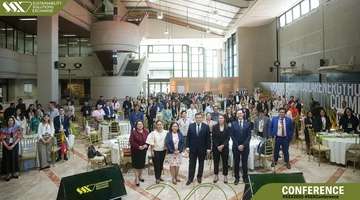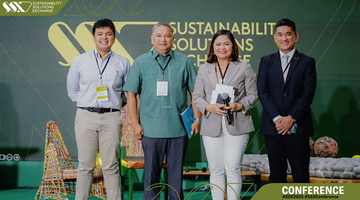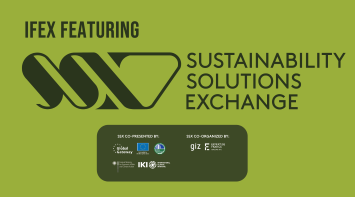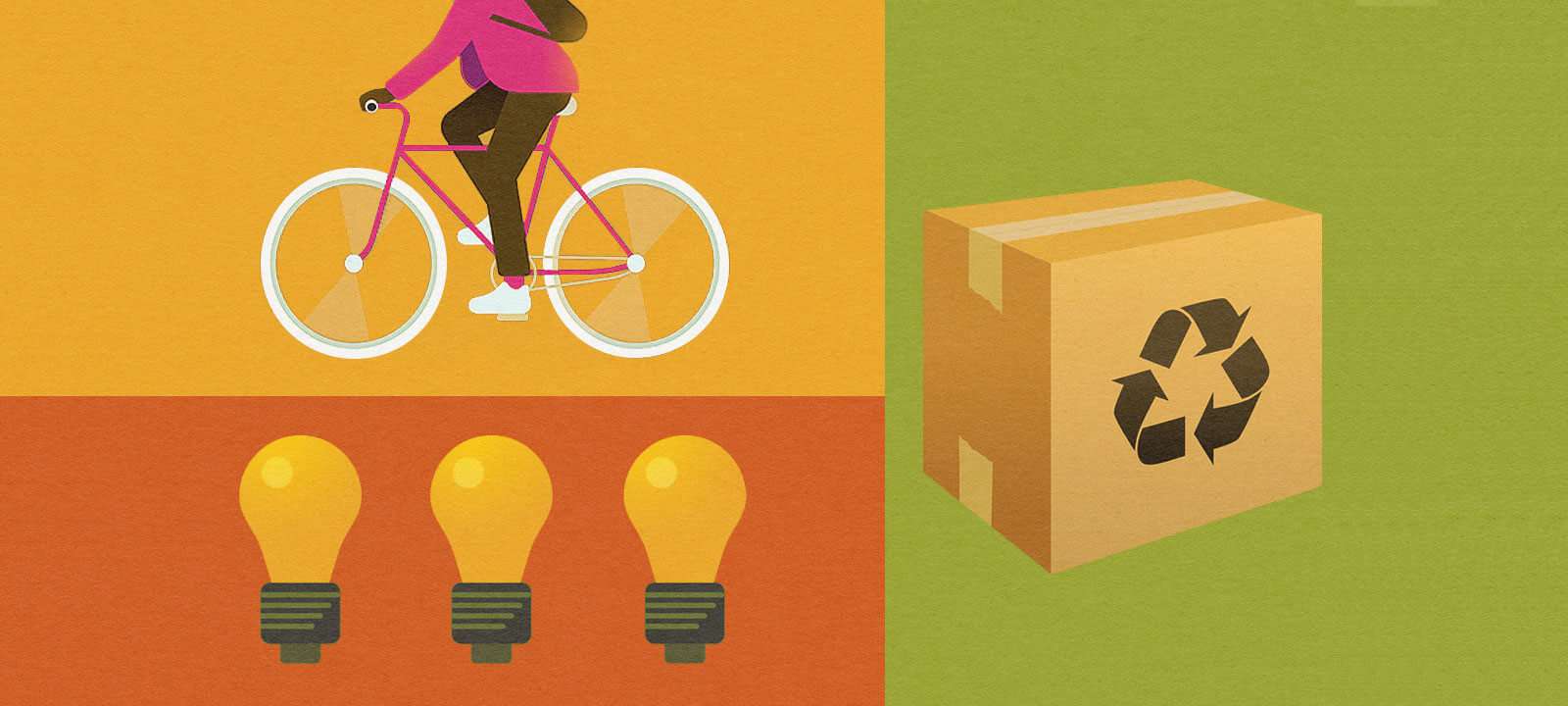POSTED Mar 29, 2022 - 12:47 PM
Simple, Low-Cost Practices To Help Your Business Become More Sustainable
Aside from reducing and reusing, here are some easy to adapt, simple practices that make a positive difference in your ecological impact and your bottomline
“Sustainability” can be an intimidating word, especially if you’re a business owner. There’s a lot of talk about minimizing waste and ethically sourcing raw materials, but sustainability isn’t just about protecting the environment.
The three fundamental pillars of sustainability are economic, environmental, and social. Excluding even one of these would make it difficult to run a truly sustainable business.
The economic pillar pertains to how the actions of a business contribute to the overall economy, like profitability and compliance with government and economic regulations. The environmental pillar refers to the effect a business or action has on the environment. For example, if a business is properly disposing of its waste to not pollute the environment.
Finally, the social pillar is how a business impacts its employees and the society it belongs to. This would cover employee wellness, as well as making sure the business positively contributes to the community it belongs to by providing employment opportunities.
As an entrepreneur, you can take steps to advocate for sustainability within your business. From recycling practices (which is easier than it sounds) to more long-term investments towards sustainability, here are a few easy ways to adopt sustainable business practices.
Recycle
Instead of just having one trash bin for all types of waste, designate bins for different types of waste to help build segregation habits.
Building proper waste management habits could help save money by reducing disposal costs through recycling, determining specific waste disposal needs, and cutting down on waste production by having a baseline metric.
Instead of having waste collectors indiscriminately load up their trucks with discarded items, you can sift through the waste to look for recyclables and donate it to a recycling facility or sell it for scrap.
When mixed waste gets to segregation facilities, it makes it harder for incinerators to work, which could lead to more energy waste. Segregation is best done at the source, which means we all have to pitch in. As of 2018, about 2 billion tons of solid waste is produced globally.
For a more convenient option, there are companies that collect waste and can help you customize specific waste management schemes for your business needs.
Cut down on disposable cups and single-use utensils
Encouraging employees to bring their own water bottles or tumblers is another easy step forward. For new hires, you can create a welcome kit that includes their own reusable tumblers and utensils to help them build better habits. An average of 2.7 million tons of plastic waste is produced in the country annually. If a person buys one bottle of water every day for a year, that’s 365 plastic bottles you could potentially find in the ocean.
Having disposable utensils in the workplace is also another practice you can eliminate. Plastic utensils are usually there for the sake of convenience and utility, but opting for individual, reusable utensils is better for the environment.
Cost-wise, spending an estimate of P300 for a reusable bottle and cutlery set for 10 employees would cost P3,000 up front. It’s a one-time purchase you don’t have to worry about again. Versus spending P200 to P500 monthly for disposable utensils that would average about P2,400 to P6,000 annually. It may not seem a lot, but it adds up in the long run.
Transportation
When it comes to transportation, the little things matter, too. For instance, riding a bike to work (if you’re able to) lessens your carbon footprint while allowing you to exercise daily. By biking to work instead of driving, you can save up to six to nine tons of carbon dioxide emissions per year. Switching out driving for walking or cycling to work for just one day a week can even help you save half a ton of carbon emissions yearly.
Carpooling is also another alternative if there are several members of your organization who live in close proximity and live too far away to bike or walk to work. Instead of having them use individual vehicles or public transportation, carpooling may be a better way for your employees to get to work. It helps people save money on transportation, gas, and can even serve as a daily team building exercise.
Switch to LED lights
LED lights are an extremely easy switch to make. Aside from providing up to 75 percent better energy efficiency than traditional incandescent bulbs, they also last much longer. Incandescent lights also produce more heat versus LED lights, which means they put out more energy.
LED lights are also more efficient and cost-effective than the common fluorescent tube lighting office spaces tend to use. Compared to fluorescent lighting, LED lights also last longer and don’t get damaged when the lights are switched on and off repeatedly.
Go paperless
While paper is in fact biodegradable, its production isn’t eco-friendly. On average, it takes more than a gallon of water to produce a single sheet of paper. Paper waste is also one of the most produced waste products in the country—second only to plastic.
While printing important documents and certifications are important in a business, transitioning to a paperless office may be more beneficial for everyone involved. Instead of printing out physical copies of low to medium priority documents, send them via email. There’s also no risk of physically losing an important piece of paper because it’s all online.
Other benefits of switching to a paperless office are more space, lower spending on paper products, and less time looking for physical documents.
Going paperless means less paper waste—and potentially—better efficiency.
Buy in bulk
The upfront cost of buying in bulk may be more expensive than buying piecemeal, but it helps save money in the long run. Commonly used office items like cleaning supplies can cost less if bought in bulk. Dish soap from grocery stores cost around P150 to P200 a liter, which can last a month or less. Buying dish soap in bulk for P300 to P500 for four liters can last up to around 4 months.
The annual cost of buying dish soap monthly can come in at P1,800 to P2,400, but buying in bulk comes in at P900 to P1,500. This means you get to save up to P900 a year—which can add up.
When it comes to office supplies or cleaning materials, buying in bulk saves time as well. Instead of going on multiple trips to purchase supplies every so often, you can just go once for a bulk amount and not have to worry about running out.
Treat your people right
One of the three pillars of sustainability is the aspect of social sustainability. Social sustainability is how a business either positively or negatively affects people. Making sure employees receive a living wage and benefits is one of the most important aspects of sustainability.
In a survey conducted in the United Kingdom, 58 percent of business owners say that the relationship between staff and managers have improved, 75 percent say that giving their employees a living wage increased employee retention and motivation, and 80 percent reported improved business reputation.
By treating your people right, it sets a positive example for how you run your business. It also breeds loyalty and trust in the organization, which are important elements for success.
Sustainable business practices are also rooted in sustainable procurement, which is “making sure that the products and services we buy are as sustainable as possible, with the lowest environmental impact and most positive social results.”
This means that aside from practicing sustainability and cutting down on unnecessary cost, you also need to think about where your products come from, who benefits from it, and the overall impact it has on the environment and society.
Everything is interconnected. We all have the responsibility to help each other and adapt to a more sustainable way of living and doing business.
For more information and news on business visit CREATE PHILIPPINES and IFEXCONNECT
Read more

EU, PH push for green solutions in food industry at Sustainability Solutions Exchange 2025
Aiming to develop a sustainable Philippine food industry, the European Union (EU) and the Department... Learn More

SSX Conference yields strategies for circular PH food industry
Transformative ideas took root at the Sustainability Solutions Exchange (SSX) Conference, where entr... Learn More

EU, PH aim to future-proof Philippine food industry at SSX 2025
In partnership with the European Union (EU), the Department of Trade and Industry’s Center for Inter... Learn More

CITEM to spotlight local jeepney maker’s electric multi-purpose vehicles overseas
Seeking greater exposure overseas for its sustainable vehicles, renowned Filipino jeepney manufactur... Learn More
